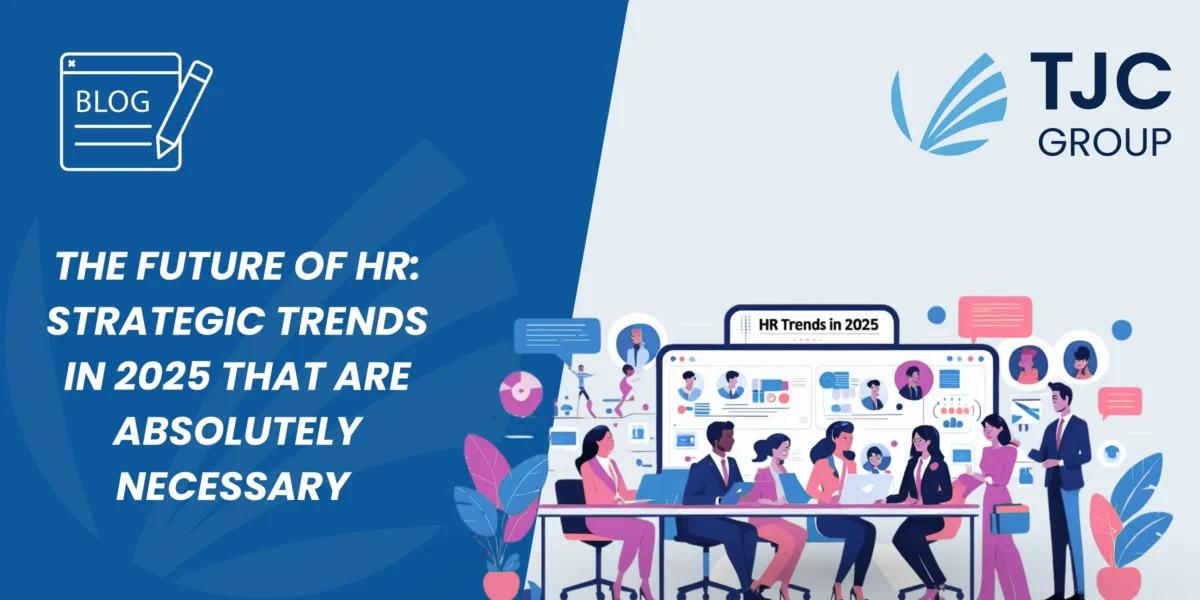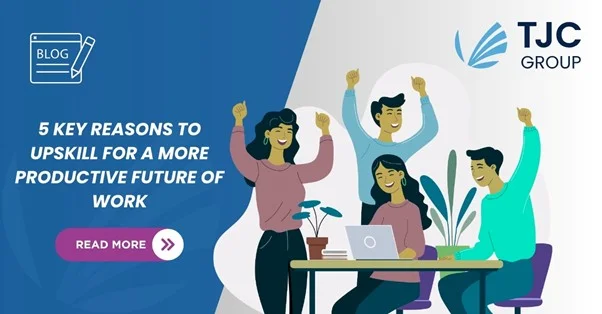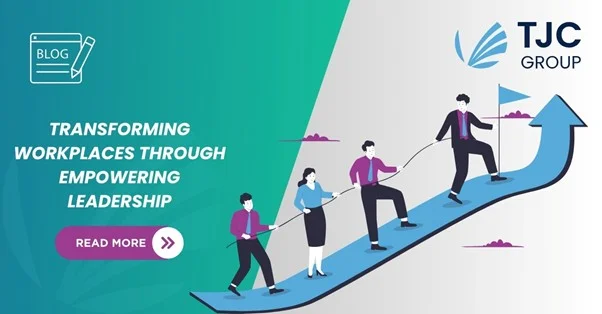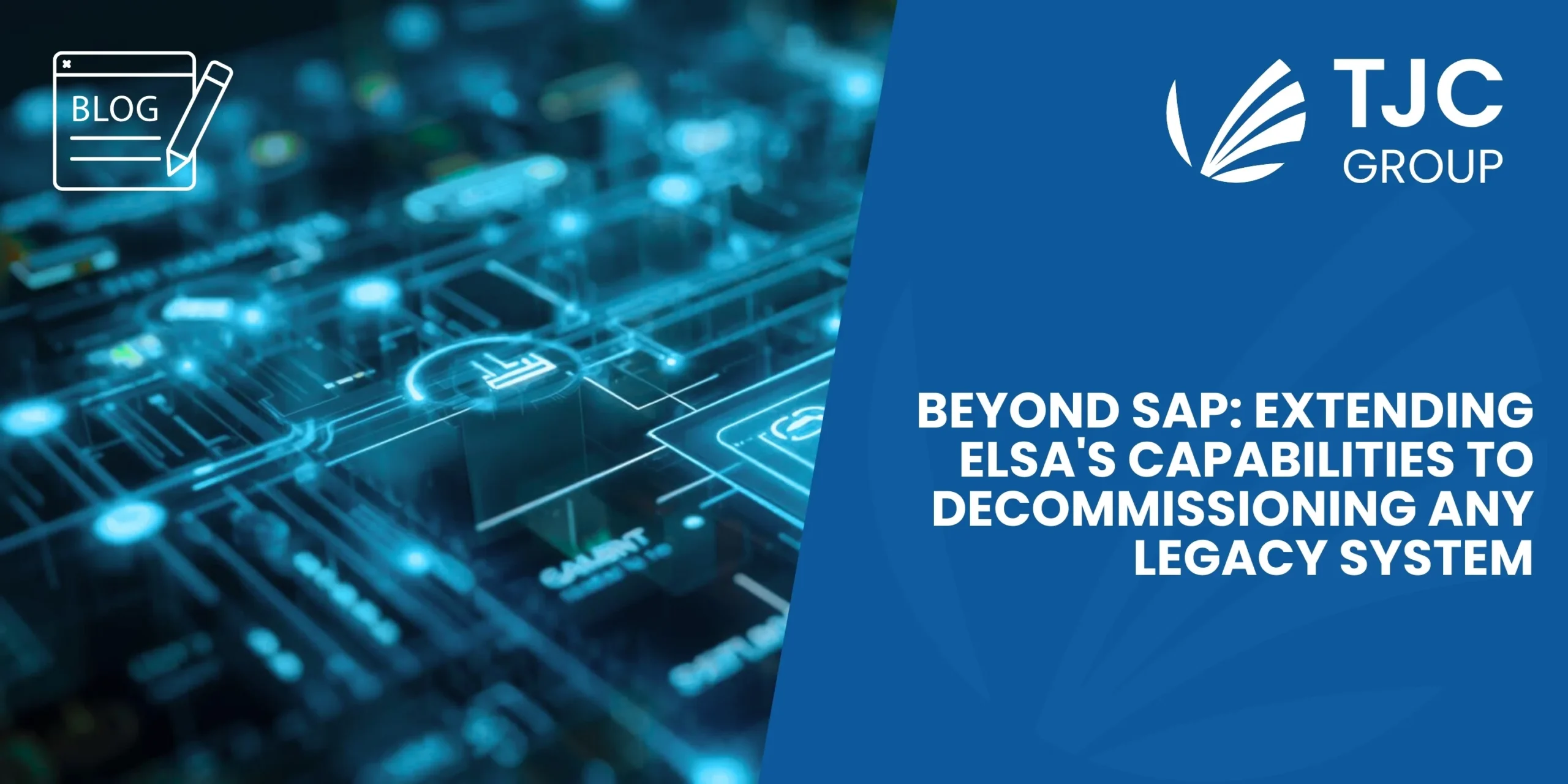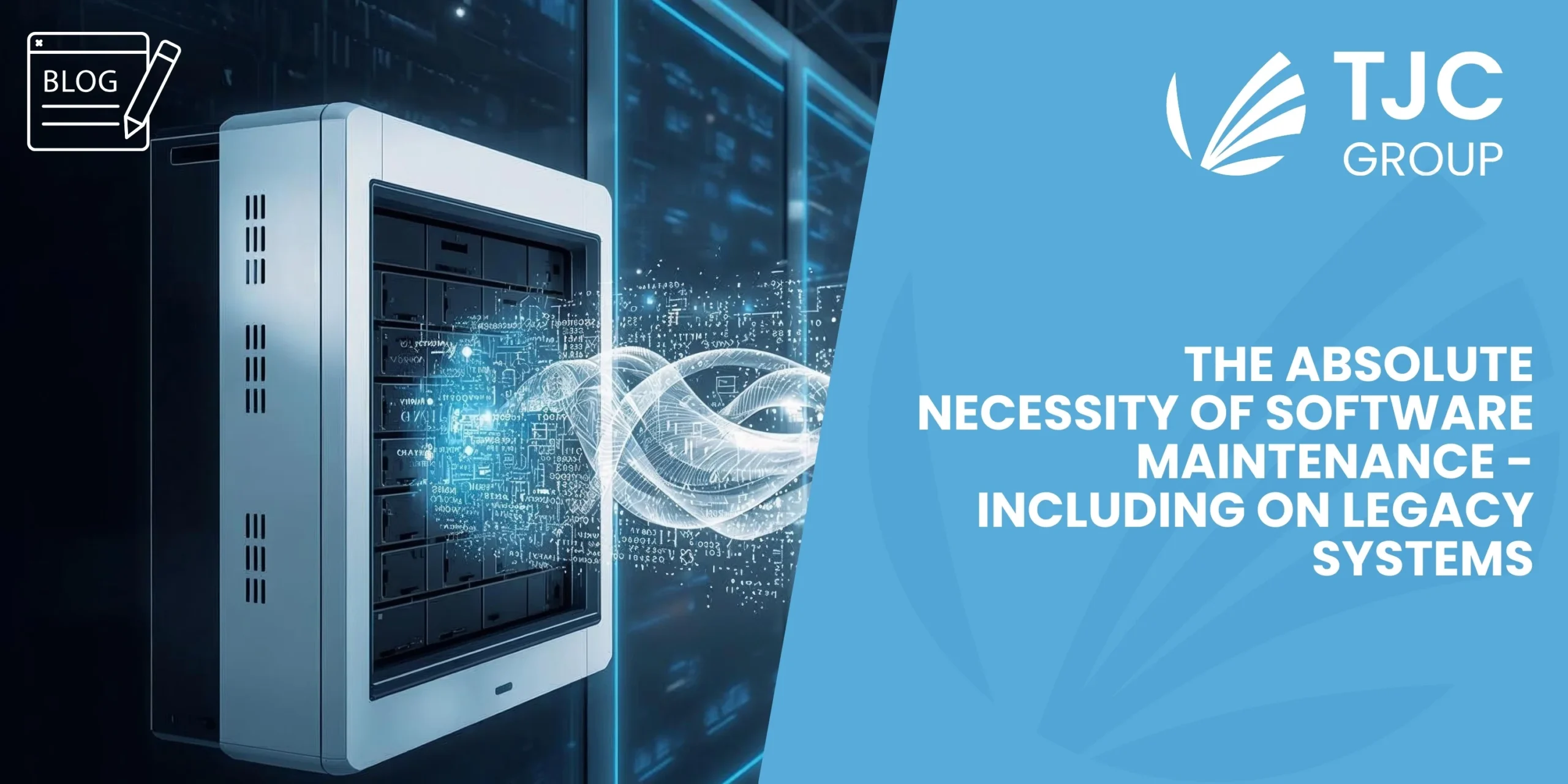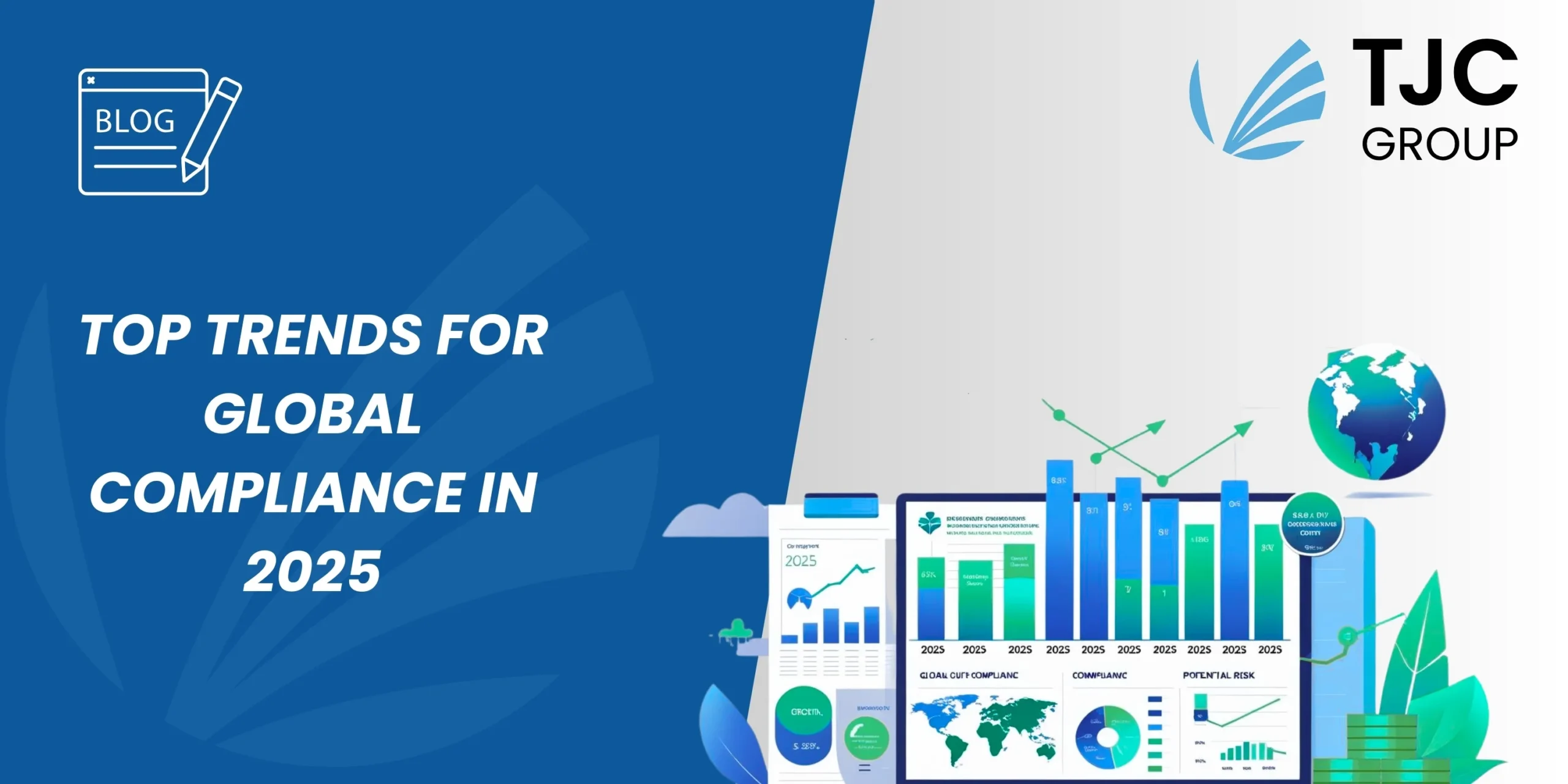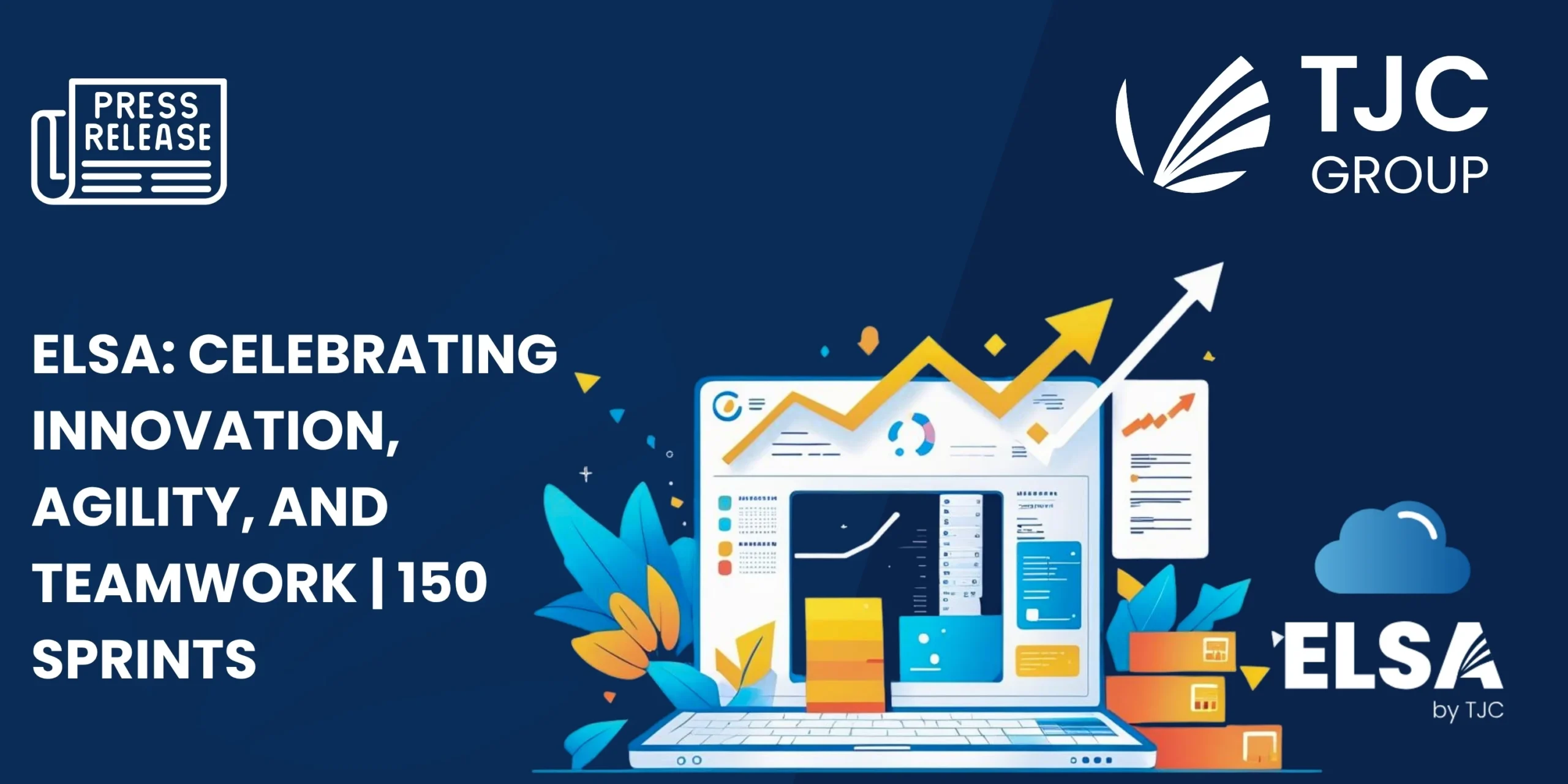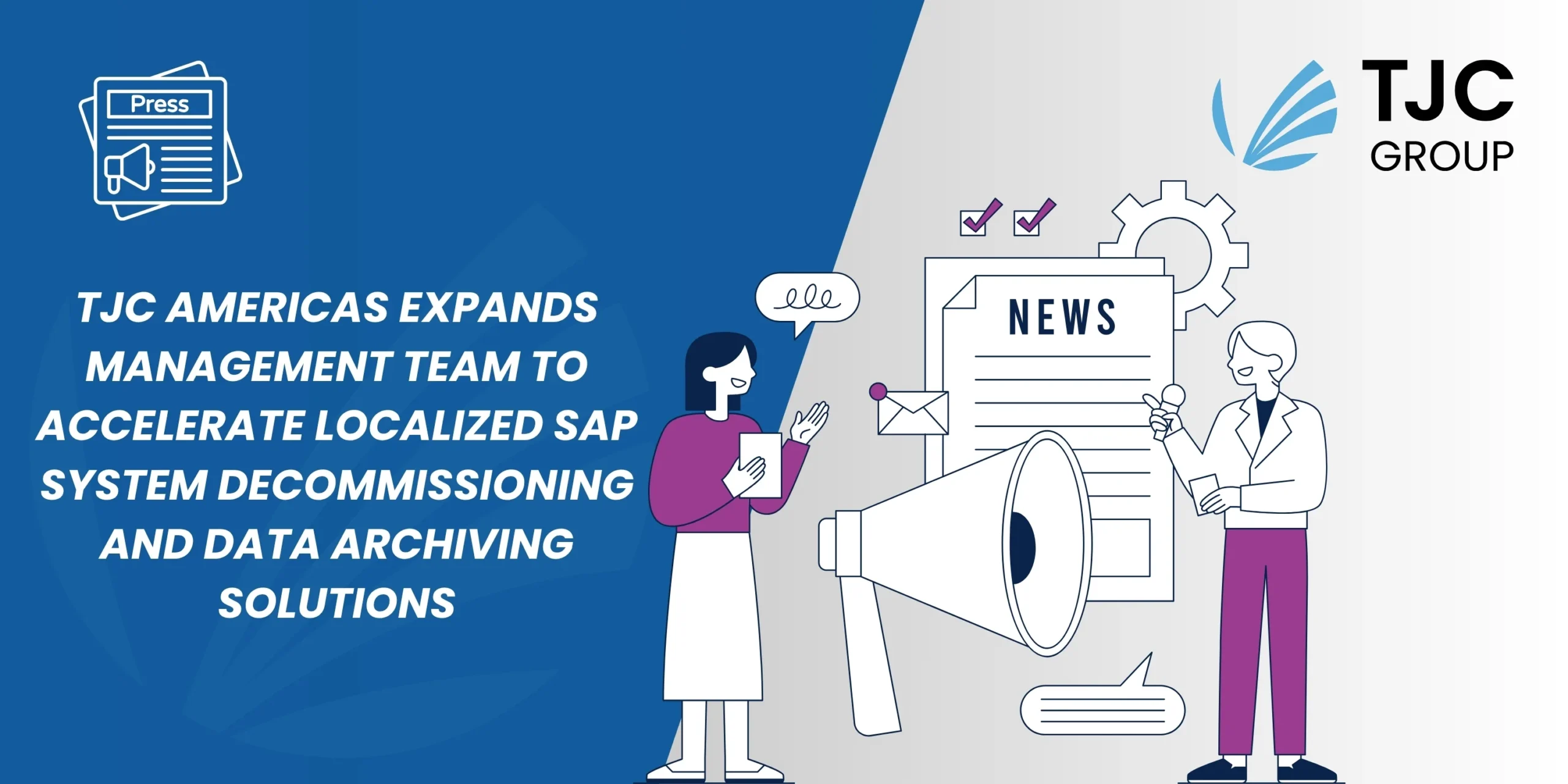Author: Content Marketing team, TJC Group | Co-Author: Renuka Sharma, HR Manager, TJC Group
In 2025, HR is at fascinating crossroads, blending technological innovation, widespread integration of artificial intelligence in HR functions, data-driven insights for recruitment, and much more. Companies are increasingly prioritising skills over traditional roles, while diversity, equity, and inclusion continue to be a central strategic pillar. In this blog, let’s discuss some of the strategic HR trends in 2025 that help shape both organisations and working professionals. Read on.
Table of contents
Introduction
The professional world, especially the corporate sector, is transforming at an unprecedented rate, and human resources stands at the forefront of this evolution. As we navigate trends in 2025, HR leaders are actively shaping a more adaptive, inclusive, and technologically advanced workplace. The past few years have been quite intriguing for the HR domain with major focus on attracting talent that are on par with the evolving advancements (process automation, ML, etc), adapting recent technologies and navigating employee expectations through data-driven insights. In 2025, these factors become even more essential as the focus shifts on artificial intelligence (AI)-driven, digitally advanced tools and technologies. In this blog, let’s talk about the strategic trends that are shaping the corporate world, highlighting the pivotal role HR plays in driving organisational success and fostering a future-ready workforce.
Discovering the latest HR trends in 2025
Long gone are the days when traditional methods of hiring were a hit. Today, everything is digitalised and backed by modern tools, which have helped largely streamline HR operations. Taking this further, here are the top 5 strategic HR trends in 2025 that you must know of –
Leveraging AI in recruitment
One of the most significant trends is leveraging Artificial Intelligence (AI) in HR, especially in the recruitment process. Today, businesses rely on advanced technology more heavily than ever, and organisations are on their way to implement modernised AI-based technology and tools. As a matter of fact, such implementation will allow recruiters to automate tedious and repetitive tasks. Furthermore, this will help the HR teams with more time to focus on the meaningful elements of the recruitment process. Moreover, AI-powered intelligent tools act like full-time recruiting assistants, sourcing candidates using dynamic strategies, so no manual search or filtering will be required.
Artificial intelligence’s presence is set to become widespread with more advanced AI tools coming in the future. The human resources departments can leverage it to source candidates, shortlist resumes, and onboard candidates with greater ease and accuracy. In fact, many leaders believe that if their business does not adopt and implement AI in HR, such as generative AI, in the coming years, they will be lagging in organisational success compared to those that do.
Click on the banner below to read about five reasons to upskill yourself for better work productivity:
Adapting data-driven recruitment strategies
As you know, data is the new fuel, and if you look at the industry today, it is reshaping the way the recruiting process works. Therefore, data-driven recruitment strategies have now become one of the most important HR trends in 2025. With advanced analytics tools, HR teams can track sourcing performance, reduce hiring biases, and optimise candidate selection processes. Key metrics, such as time span to hire a candidate, cost per hire, and candidate skills, guide smarter decisions and move the process towards strategic recruitments. Additionally, predictive analytics also helps companies forecast future talent requirements and evaluate candidate suitability based on previously used patterns of the recruiting process.
This effective data-driven approach provides continuous improvement in hiring processes and supports enhanced and better alignment with business goals. With the help of a data-driven approach and recruitment analytics tools, companies can make faster, data-backed decisions that enhance candidate experience and long-term workforce performance.
Paradigm shift towards new age hiring
With the influx of automation, AI, and more digitalised tools, it has become quintessential for HR teams to look for candidates possessing such skills, smoothening out recruitment, talent management, and career development. This means identifying the specific competencies needed for roles, assessing candidates based on their demonstrable skills, and providing continuous learning pathways to help employees acquire new, relevant abilities. This approach helps develop greater workforce agility, reduces biases, and allows companies to build talent pools that can adapt quickly to changing business needs.
Integrating DEI into workplace environments
Diversity, Equity, and Inclusion (DEI) have become one of the most critical components of organisational culture. Although, it cannot be touted as a new HR trend in 2025, per se, it is important to note that organisations are embedding DEI into their hiring practices, performance analysis, leadership development, and everyday interactions, making employees feel valued. Moreover, transparent communication, inclusive policies, and active support for underrepresented groups are becoming a standard in corporate settings. With the DEI policies in place, organisations are able to foster innovation, attract the right talent, and build a stronger sense of belonging across their workforce.
Prioritising upskilling and continuous learning
Apart from AI in HR and other similar trends in 2025, prioritising upskilling and continuous learning happens to be at the forefront as well. You see, in a rapidly evolving work landscape, having the same set of skills without evolving yourself can stagnate growth. As a solution to this, HR teams across organisations play a proactive role in fostering a culture of continuous learning. This involves implementing effective upskilling and reskilling programs, leveraging adaptive learning technologies, and providing employees with personalised development paths. The goal is to ensure the workforce remains agile, adaptable, and equipped with the capabilities required to meet future business needs, thereby enhancing both individual career trajectories and organisational resilience.
Safeguarding the digital workspace: HR’s role in cybersecurity and data privacy
So far in this blog, you’ve explored some of the key HR trends in 2025; however, it is also important to understand the notable contributions that HR teams make in maintaining cybersecurity and data privacy best practices. In an increasingly advanced, digital world, the lines between an organisation’s operational security and human capital are blurring. HR departments, handling vast amounts of employee and other business-related data, are no longer just administrative hubs but critical custodians of sensitive information.
How TJC Group’s HR team contributes to a secure data environment
Employee training and awareness
Our HR team plays a significant role in developing a security-conscious culture. Through comprehensive and regular training, the team educates employees on data privacy policies, identifying numerous security threats, and secure data handling practices. This help employees stay vigilant and alert from potential vulnerabilities, thereby ensuring the first line of defence against cyber threats.
Access management and policy enforcement
With the help of recent technologies, such as AI in HR, establishing and enforcing clear policies regarding data access are in place at TJC Group. By doing so, we have ensured that employees only have access to the information for their roles, which helps limit potential internal breaches. Furthermore, TJC Group’s HR team has also set guidelines for handling confidential information, work security protocols, and the use of personal devices.
Protecting sensitive data throughout the employee lifecycle
From recruitment (applicants’ data) and onboarding (personal details, bank information) to performance management (employee reviews) and offboarding (data deletion process), HR manages a significant amount of sensitive information. Implementing strong security measures at each step has always been important to us, thereby preventing unauthorised access or breaches.
Crisis management and incident response
While this is not, per se, a trend in 2025, it’s critical to understand that in the unfortunate event of a data breach, HR works closely with IT and legal teams to manage the fallout, communicate with affected employees, and ensure adherence to reporting requirements. TJC Group’s HR team has put in place strong methods to manage such crises, having deep understanding of employee data and organisational structure essential for a swift and effective response.
All in all, HR is at the forefront of building a resilient workforce that understands, respects, and actively participates in safeguarding the organisation. At TJC Group, our dedication to strong data security enforces our ability to support these critical HR functions and broader organisational data management. We recognise that trust is built on a foundation of security, which is why TJC Group has achieved ISO27002 certification for information security. This internationally recognised standard signifies our unwavering commitment to the highest level of information security management, demonstrating our proactive approach to safeguarding sensitive data.
Our take on strategic HR trends in 2025
The HR landscape demands more than just adaptability; it requires a proactive and strategic approach to emerging HR trends in 2025 that directly impact organisational success
Looking ahead, TJC Group recognises the paramount importance of upskilling and training of AI to empower the workforce for the future. Moreover, we understand that performance evaluation and employee experience must evolve beyond traditional metrics, embracing continuous feedback loops and data-driven insights to support growth and development. In fact, we encourage our HR teams to leverage the capabilities of AI in HR to build comprehensive performance frameworks that are fair, transparent, and geared towards individual and collective advancements.
Final word
Apart from building a culture of trust and transparency, TJC Group also champion the rise of leadership backed with empathy and emotional intelligence to support effective human resources best practices. In an increasingly dynamic work environment, leaders who can connect with their teams on a human level, understand their challenges and empower a supportive culture are crucial. Our focus on secure and accessible information helps leaders with the data they need to make informed decisions while maintaining a human-centric approach.
Lastly, as businesses navigate digital transformation, cybersecurity in HR becomes non-negotiable. By strategically highlighting these trends in 2025, TJC Group showcase its commitment to help companies not just adapt but thrive in the constantly changing HR landscape.
Read some of our other interesting blogs, where we’ve highlighted topics such as upskilling, empowering leadership, team spotlights, and many more!


